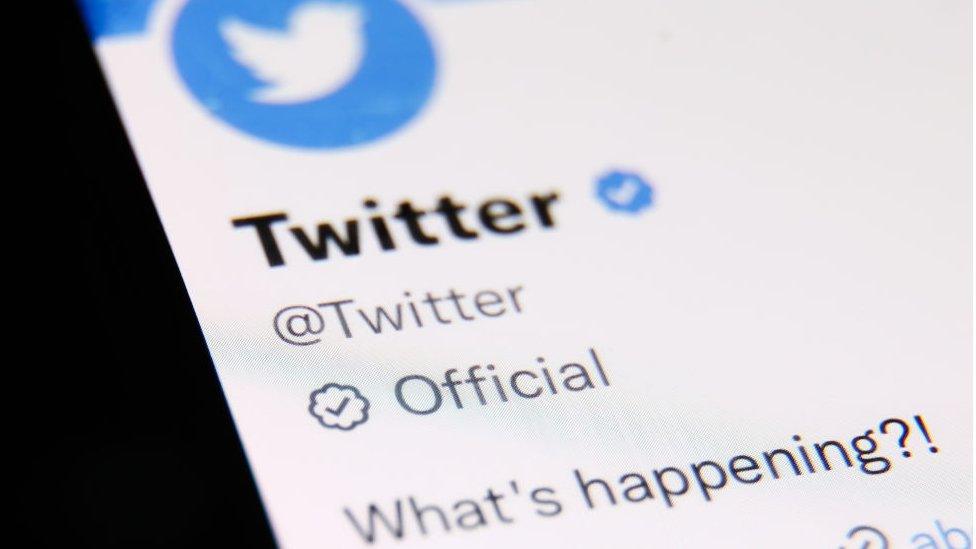Twitter: Romance, business and campaigns born on the platform
- Published
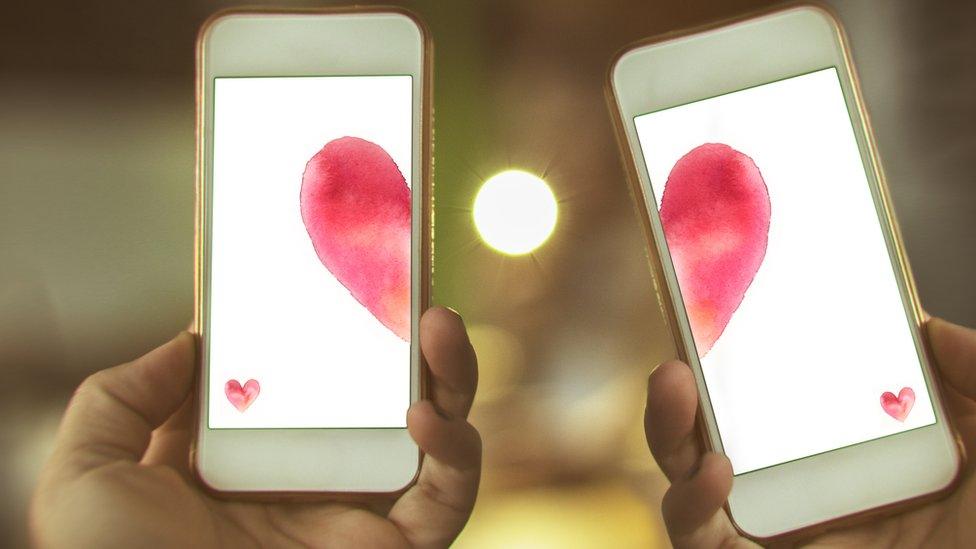
For those who work there and those who use it, Twitter continues to be on a rollercoaster under the leadership of Elon Musk, who bought the firm for $44bn (£36.3m) at the end of October.
The tumult has brought into sharper focus some of the platform's failings. Like all social networks, Twitter has long grappled with problems regarding privacy, hate speech and abuse.
But for some of its roughly 300 million monthly users, it has also been a place where they have built businesses, found love, launched campaigns and raised awareness for issues that are important to them.
I spoke to three women who say being on Twitter changed their lives for the better.
I met the love of my life
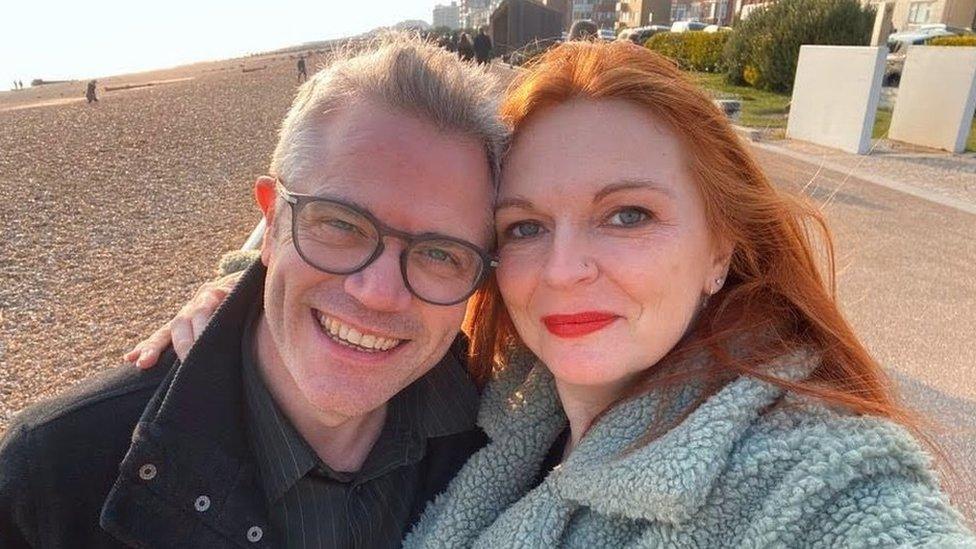
Catherine Cooke is a teaching assistant
I didn't start out looking for romance. But what I did use Twitter for was support, it's quite an isolating thing going through a divorce. And you can of course talk to real-life friends and family, but sometimes they're a little bit too close. Sometimes it's just very useful to have a sounding board.
You can have a vent and a rant. And there's somebody there who will either be sympathetic or maybe tell you off, but you will definitely get a reaction, and probably some quite honest feedback as well. I started off really using Twitter as a bit of a diary.
Along the way, I found lots of people who were going through the same thing or had been through the same thing, and had useful information or advice.
As far as the romance side of it goes, really that came out of friendships I'd made on Twitter. I like music and I got chatting to people about it. One of those people eventually ended up being my partner. But it did start out in friendship, a shared love of music and general chit-chat.
I love Twitter. There's so many people out there that I feel very, very strongly about even though we've never met, which does sound a bit weird. Online friends are a different sort of friend from real-life friends, but they're really important. I feel like I couldn't have got through the last couple of years without those people. I'm very positive about Twitter, I think it can be an absolute force for good.
Twitter has changed my life, I can't believe I'm actually saying that but it's true. I've gone from being on my own and going through divorce, to feeling that I've met the love of my life. I would never have met him if it hadn't been for Twitter. I feel really, really lucky.
My side hustle became my full-time job
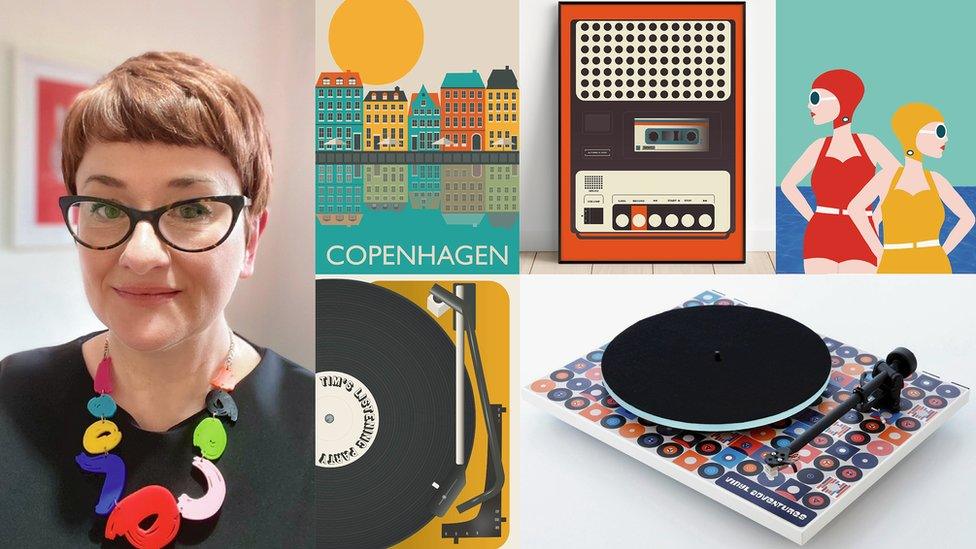
Gail Myerscough is an illustrator and pattern designer
Twitter has been amazing. I've got 18,400 followers, so I've got a real audience for my work. But it's also been really supportive. People have been with me on my journey. I was made redundant in Covid - this was my side hustle and then it became my full-time job. I also met my husband on Twitter.
I've got brand ambassadors now on Twitter who retweet me, I've got repeat customers. I've worked with some amazing people. Tim Burgess from the band The Charlatans contacted me one day and said, "I really like your work". And then he asked me to design a turntable for him. So we designed a limited-edition turntable - it was brilliant.
I get a lot of traffic from Twitter. I do have Instagram, but the algorithms and engagement make it more difficult to get people to look at your work.
I'm really worried about what's happening [since Elon Musk took over] because like I say, a lot of my business and support comes from Twitter. If Twitter went, I'd have to build my business elsewhere, and I don't know where that would be to get the same engagement and orders.
Twitter was the obvious solution
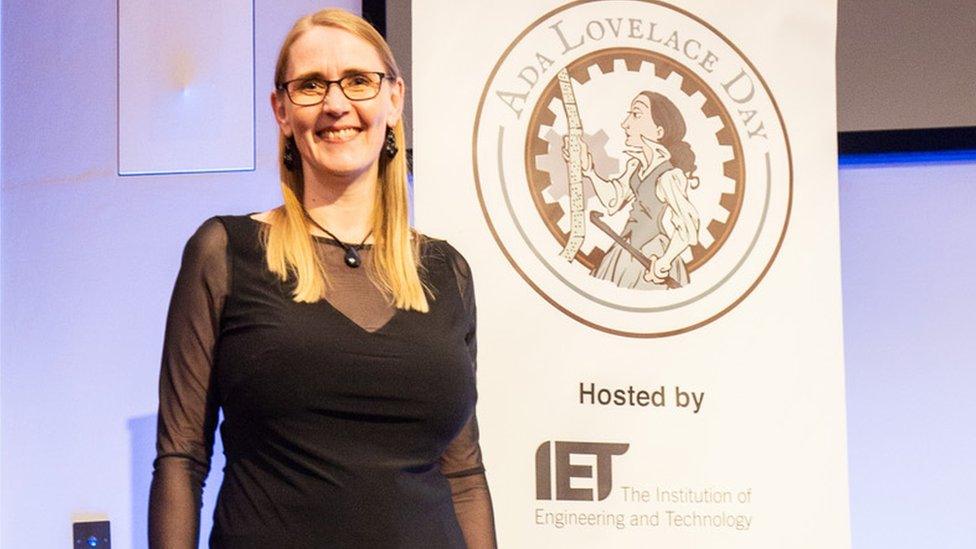
Suw Charman-Anderson founded Ada Lovelace Day, an annual celebration of women working in Stem (science, tech, engineering and maths)
I started the Ada Lovelace Day Twitter account at the end of 2008. And at that point, the idea of having a day celebrating women in Stem - well it was just an idea. I didn't have any resources or any way to reach people. Twitter was the obvious solution. In all honesty, I don't think Ada Lovelace Day would have become the movement that it did without the help of Twitter.
We have 40% of our audience in the UK, and about 40% in North America. The other 20% is in about 150 countries around the world. So we have followers from across South America, Africa, Asia, it has allowed us to reach people in countries where the media isn't going to pick us up.
With a bit of care, it has been possible to curate an experience on Twitter that is generally pleasant. Obviously, there is always the opportunity for things to go wrong. I have experienced the Twitter pile-on - not quite becoming the main character thankfully, but adjacent to it - and that is never pleasant.
But overall, I think it has been a positive experience for me and I am grateful to Twitter for allowing Ada Lovelace Day to flourish in the way that it has. I see other organisations for women in Stem and all sorts of other things that exist because Twitter connects them with their community and their audience in a way that other tools just don't.
I just don't see the same level of engagement on Facebook or LinkedIn for example. I think Twitter is interesting, it's unique in its properties, and I would be really heartbroken if it did break permanently or if we saw a huge drop off in numbers.
Hear Catherine, Gail and Suw on this week's Tech Tent podcast
You can follow Zoe Kleinman on Twitter (@zsk, external), and on Mastodon (@zsk@mastodonapp.uk).
Related topics
- Published17 November 2022
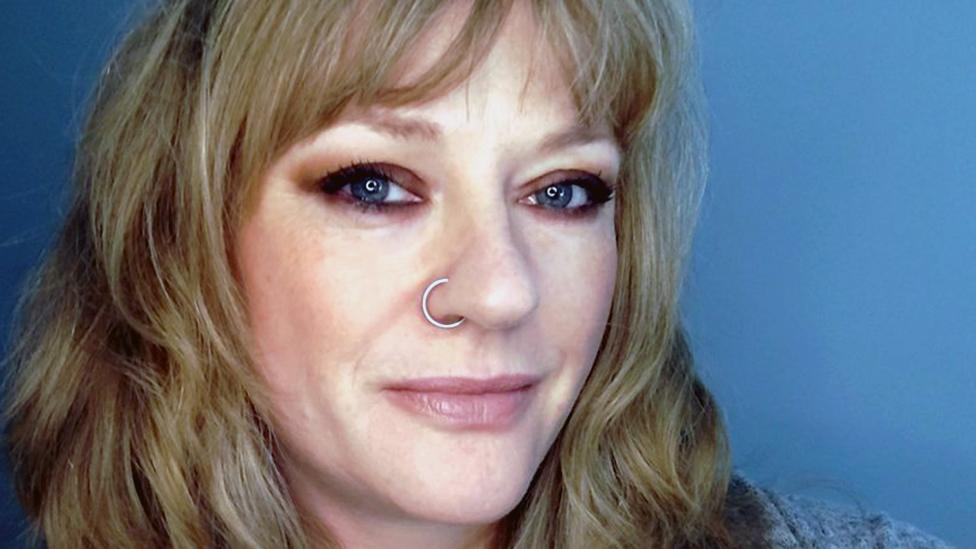
- Published18 November 2022
